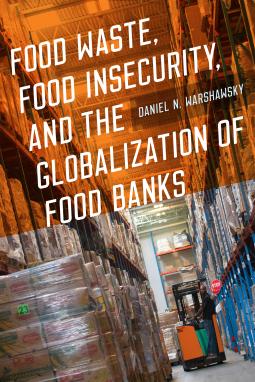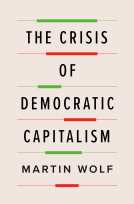
Food Waste, Food Insecurity, and the Globalization of Food Banks
by Daniel N. Warshawsky
This title was previously available on NetGalley and is now archived.
Send NetGalley books directly to your Kindle or Kindle app
1
To read on a Kindle or Kindle app, please add kindle@netgalley.com as an approved email address to receive files in your Amazon account. Click here for step-by-step instructions.
2
Also find your Kindle email address within your Amazon account, and enter it here.
Pub Date Jan 02 2024 | Archive Date Jan 02 2024
University of Iowa Press | University Of Iowa Press
Talking about this book? Use #FoodWasteFoodInsecurityandtheGlobalizationofFoodBanks #NetGalley. More hashtag tips!
Description
FOOD / POLITICS
Food banks—warehouses that collect and systematize surplus food—have expanded into one of the largest mechanisms to redistribute food waste. From their origins in North America in the 1960s, food banks provide food to communities in approximately one hundred countries on six continents. This book analyzes the development of food banks across the world and the limits of food charity as a means to reduce food insecurity and food waste.
Based on fifteen years of in-depth fieldwork on four continents, Daniel Warshawsky illustrates how and why food banks proliferate across the globe even though their impacts may be limited. He suggests that we need to reformulate the role of food banks. The mission of food banks needs to be more realistic, as food surpluses cannot reduce food insecurity on a significant scale. Food banks need to regain their institutional independence from the state and corporations, and incorporate the knowledge and experiences of the food insecure in the daily operations of the food system. These collective changes can contribute to a future where food banks play a smaller but more targeted role in food systems.
A Note From the Publisher
Acknowledgments
Preface
Introduction
1 The Rise of the Food Bank
2 Food Banking in the United States
3 Food Banking in Israel and Southwestern Asia
4 Food Banking in Germany and Denmark
5 Food Banking in Italy and Hungary
6 Food Banks in India and South Africa
Conclusion. Putting Food Banks in their Place
Notes
Bibliography
Index
Available Editions
| EDITION | Other Format |
| ISBN | 9781609389338 |
| PRICE | $40.00 (USD) |
| PAGES | 250 |
Available on NetGalley
Featured Reviews
Solid Primer On The Concept Marred By Typical Academic Left Leaning Myopia. Quite simply, at roughly 38% documentation across just a 225 page or so text, this is one of the better documented nonfiction books I've come across in quite some time. Indeed, at times it seemed like there were citations on every sentence or maybe just every other sentence, they were that prevalent. So a lot of kudos on that end, and it really helps make the case of what Prof. Warshawsky is showing here in describing how food banks began in different regions around the world and what their current realities are. Through these sections, the book is truly a great resource for seeing just how widespread the idea is now and the various challenges each particular country and region faces in providing these services.
Indeed, the only real flaw here - and yes, it was big enough that it warranted the star deduction - is the typical left leaning (vs outright leftist) myopia common in Academic circles. Over and over and over again, Warshawsky blames corporations as only sponsoring these efforts in order to burnish their own public images and condemns these efforts as stymying truly productive reforms, all without truly looking to a more holistic approach to those very reforms or even to this specific issue. Instead, while so much else of the text is so well documented, that government providing these services is better than private efforts is seen more as a fait accompli never to be questioned or even examined.
So read this text, it really is quite remarkable so far as it goes. But don't let its limitations limit your own imagination. There likely are better solutions to these issues out there - but assuming any one approach will work globally probably isn't going to work, for the very reasons Warshawsky illuminates here. Very much recommended.
 Reviewer 862825
Reviewer 862825
n academic text, whose title reads like a checklist of the content, Food Waste, Food Insecurity, and the Globalization of Food Banks explores the global system of food banks in the twenty-first century.
After an introductory chapter, Daniel Warshawsky details the United States food bank system, each chapter that follows looks at the food systems in two nations or regions. For each one, Warshawsky notes the foundation of the organization, sources of food and distribution locations and the challenges of both the 2007-08 Global Financial Crisis and the COVID-19 Pandemic. The latter was of particular importance in emphasizing Warshawsky’s point about the food banks not being enough to address food insecurity.
This book is definitely for those working in or research food issues. It is a succinct, and at times dry, survey history detailing the development of food banks individually and as part of global organizations. The book details the ways corporation use food banks to handle food waste and appear charitable, but that the resources allocated to food banks are not enough. In the regions of most affluence food banks have the most resources, but a key weakness in their usage is a lack of distribution to reach areas of most need.
Any interesting point that comes up in most chapters is the effect of one, or a small group, of individuals in establishing a food bank based on their own experiences or commitment to reducing waste. Warshawsky includes lots of statistics to make this point, emphasis the amount of food wasted in each nation/region. In discussing the food bank sites, he also demonstrates them as more than just warehouses, as some are integral to their community also service as centers or places of displaying art.
Recommended for those shaping public policy, working in any aspect of the food industry and researchers of the food industry or global systems. Not recommended for the general reader.
 Willy M, Reviewer
Willy M, Reviewer
Authoritative and simple to understand. Warshawsky has produced a definitive guide to the nature of this problem. There is a lot here and lot to contemplate. Don't rush this book, think and absorb. This is not a simple problem and Warshawsky gives a good grounding in the problems that exist and the possibility of a solution.
 Jessica B, Reviewer
Jessica B, Reviewer
Daniel N. Warshawsky's *Food Waste, Food Insecurity, and the Globalization of Food Banks* offers a compelling examination of the complex relationship between food waste and food insecurity on a global scale. Warshawsky expertly navigates the rise of food banks as a response to these issues, revealing both their potential and their limitations in addressing systemic inequalities. The book is well-researched and thought-provoking, though it sometimes delves deeply into academic analysis, which might be challenging for general readers. Overall, it’s an insightful read for anyone interested in food justice and global sustainability.


















